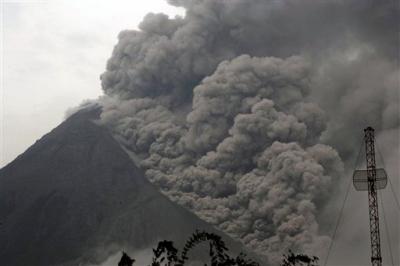
REI’s staff in Indonesia grieve about the recent volcano eruption and continue their work of fighting poverty.
On Thursday, October 28, 2010, Mount Merapi erupted, spewing hot gas and debris that killed 35 people. The eruptions continued into Friday, forcing 50,000 people to stay in temporary camps outside the radius of the blast. Those in the camps couldn’t even use the water to clean the food because it was so full of dust.
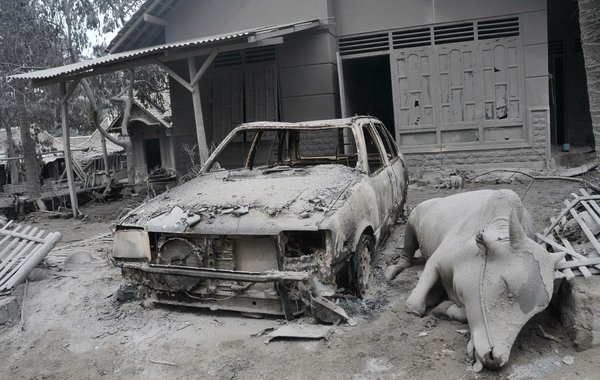
On Monday, November 1, Mount Merapi erupted again, driving thousands more from their homes. Gray plumes of ash and superheated gases swept down the mountain as residents who had returned to their work of tending their fields and livestock fled down the slopes in panic.
A few days before, a tsunami and earthquake had hit another part of the Indonesian archipelago, the Mentawai Islands, 750 miles from the volcanic eruptions. 408 were killed in those disasters and 303 were missing.
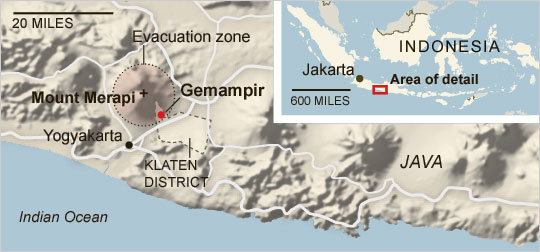
All in all, over 500 people were killed from the three disasters and 160,000 Indonesians are now living in evacuation camps. As one Red Cross worker said, “A lot of people won’t be able to return to their homes and livelihoods. Long-term recovery will be difficult.”
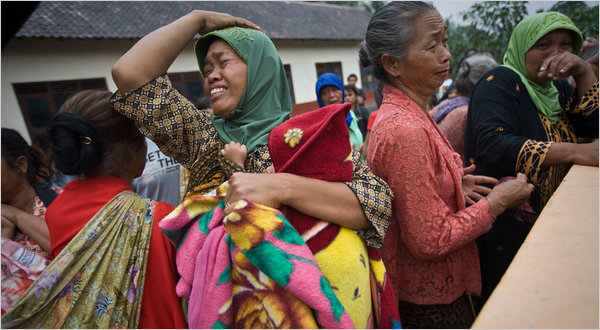
At the REI Global Office, we felt connected to these disasters because two REI staff families live and work in Indonesia. Thankfully, they were protected from the danger, and rather than discourage them in their work, they showed us they are even more resolved to bring help and hope to the poor in Indonesia.
Chuck’s thoughts fit well in our exploration of poverty, so we’ll let you read his words:
“Earthquakes, tsunamis and volcano eruptions. You never know what a new week will bring. Although our work and family life have not been affected, our hearts go out to those who lost family members, homes, and who have suffered health problems as a direct result of this week’s string of natural disasters in Indonesia.
“While international organizations scramble to assist the Indonesian government as they render aid and comfort in multiple locations, discussions continue at the international level regarding the ways and means to address the plight of the poor and hungry.
“Two weeks ago, on the occasion of World Food Day (October 16th), the UN Secretary-General Ban Ki-moon stated that ‘there are still 925 million hungry people in the world,’ a situation that demands attention at the world level.
“Although disaster relief can unite and focus the efforts of a lot of international players, the hunger eradication debate has not yet resulted in a consensus. Some advocate for agricultural research in underdeveloped areas. Some advocate assistance for small farmers. Some advocate for industrialization, noting that ‘farming in developing countries is an unremitting, unrewarding life and it is likely to stay that way for many generations until industrialization pushes up farm incomes.’”
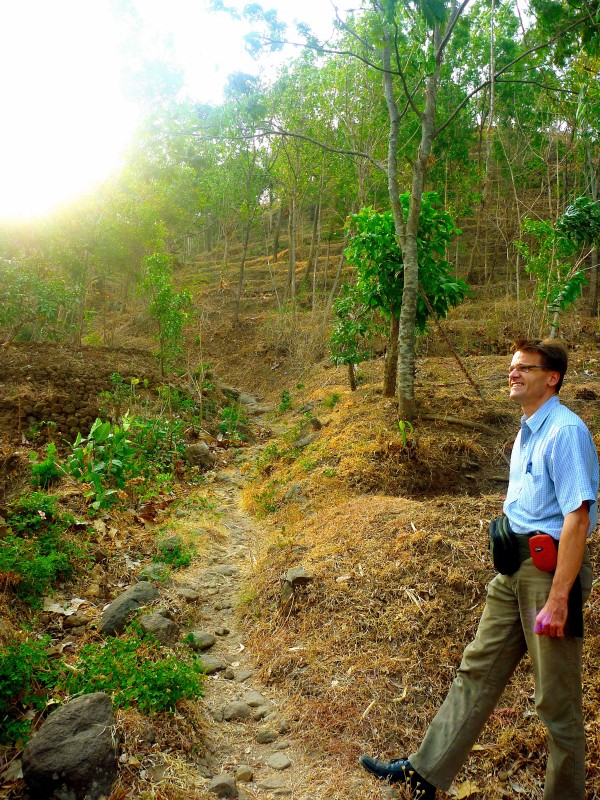
Although REI’s staff members are not involved in discussions about poverty “at the world level”, they are addressing poverty in Indonesia in precisely the manner discussed above. Dr. Chuck N, who holds a PhD in Agricultural Economics from Iowa State University, and Dave, who has extensive experience in International agricultural business and an MBA in Executive Management from Royal Roads University, have found, through some trial and error, that the way to address the poverty in Indonesia is through industrialization that pushes up farm incomes. In Chuck’s words, “They aim to birth a new industry of food processing in Indonesia, creating income for rural families where none existed before.”
In 2007, REI’s staff began a small dried mango production enterprise called P.T. Sun Rei in East Java, Indonesia, using innovative dehydrating technology developed by REI staff. Because Indonesia’s underemployment rate is up to 30% in rural areas, REI has focused on hiring and training rural farmers with hopes that a new industry will be birthed to employ the Indonesian poor.
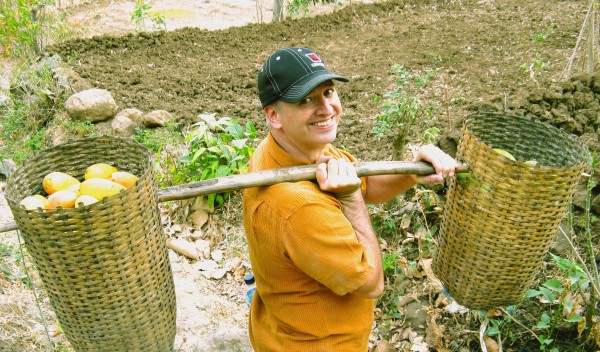
In 2009, P.T. Sun Rei provided 30 jobs for farmers, who were all trained by REI staff in food processing, hygienic standards of food manufacturing, business management, and the maintenance of the drying technology. During the three-month mango season, the village employees more than doubled their annual income through their work with REI. They also dried 40 tons of raw mangos from their own land (three tons of dried mangos), which was marketed and sold in domestic markets.
Chuck saw the fruit of their labors in a recent trip he made to a village nearby where and he and his family lives in Indonesia. He says, “I just returned from a visit to the village of Tiron, where the leader [of our mango processing plant], Mr. Jem, reported that the mango harvest will be much less this year and that, for him and his neighbors, the resulting income from [selling fresh mangoes] from their trees will also be much less. Fortunately, we’ve trained and equipped him to process mangos into a product with additional value (dried mangos), an effort that is even more important now that their income from other endeavors has dropped. He told me that other village farmers would like to be trained and equipped in the technologies and processes that REI has pioneered in the area.”
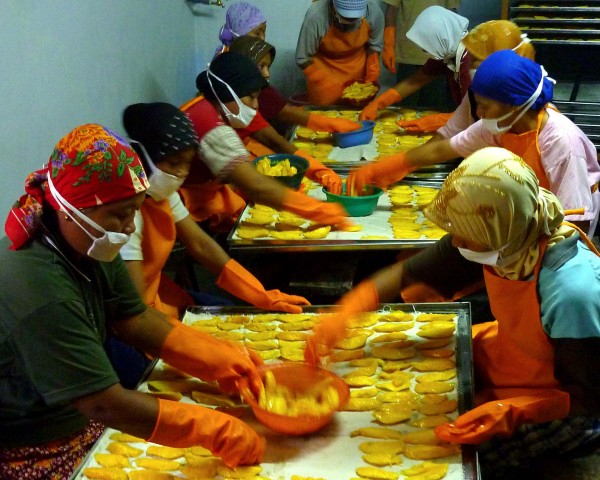
As you can tell, REI’s dreams for this project are only beginning to see fruition. The next step is to expand the dried mango production to export to international markets. Last year, P.T. Sun Rei dried three tons of mangos; to get into international markets, the plant must produce at least 20 tons of dried mangos. We have already raised $50,000 toward this project, and we are excited to see how the funds for this project will be provided for us, as we seek to raise another $150,000 over the next few years.
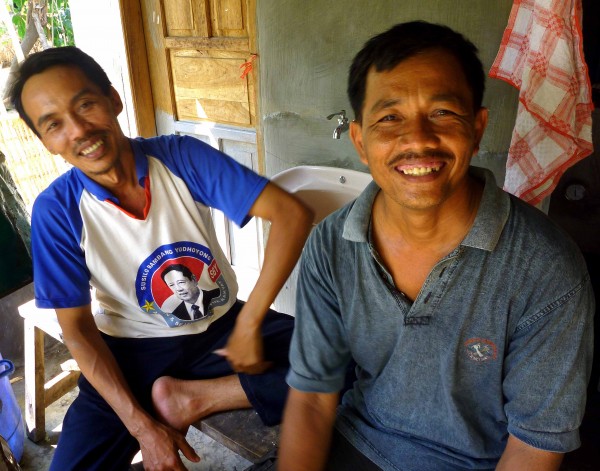
We are thankful for REI staff with such a lofty vision of changing the world through their REI work. We’ll leave you with Chuck’s final thoughts:
“With hundreds of millions of hungry people in the world, I’m pleased to report that the Boaz Project is doing its part to create income possibilities where none previously existed among rural, low-income households in Indonesia. Through this project, we can address poverty and hunger by creating food processing jobs in rural areas. Referring to the Boaz Project, a donor recently gushed, “What an outstanding way to end poverty in our world.”
———————–
To make a contribution to this REI project, please designate your gift by including a note that you are donating to the “Boaz Project.”
Also, to view more photos, visit the New York Times’ Gallery.
Photo Credits:
Photo 1 from the Denver Post ; Photos 2, 3, and 4 from New York Times articles; and Photos 5-9 provided by REI Staff Member Chuck.


 Keep up with REI's work overseas by reading our blog! Subscribe by email or by feed.
Keep up with REI's work overseas by reading our blog! Subscribe by email or by feed.